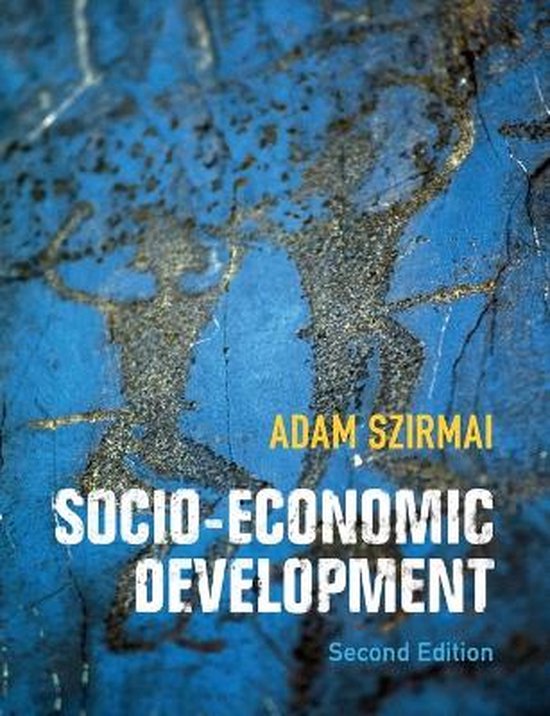
Socio-Economic Development
Taking a comparative and multidisciplinary approach, this textbook offers a non-technical introduction to the dynamics of socio-economic development and stagnation.
Why are poor countries poor and rich countries rich? How are wealth and poverty related to changes in health, life expectancy, education, population growth and politics? This non-technical introduction to development studies explores the dynamics of socio-economic development and stagnation in developing countries. Thoroughly updated and revised, this second edition includes new material on the effects of the 2008 financial crisis, the emergence of the BRICS economies, the role of institutions in development and the accelerated growth of economies in Africa and Asia. Taking a comparative approach, Szirmai places contemporary debates within their broader contexts and combines insights and theories from economics, economic history, political science, anthropology and sociology. Each chapter includes comparative statistics and time series for thirty-one developing countries. Assuming no prior knowledge of economics, this book is well-suited for students in interdisciplinary development studies and development economics, for policy-makers and for practitioners pursuing careers in developing countries. Visit www.dynamicsofdevelopment.com for additional resources.
Why are poor countries poor and rich countries rich? How are wealth and poverty related to changes in health, life expectancy, education, population growth and politics? This non-technical introduction to development studies explores the dynamics of socio-economic development and stagnation in developing countries. Thoroughly updated and revised, this second edition includes new material on the effects of the 2008 financial crisis, the emergence of the BRICS economies, the role of institutions in development and the accelerated growth of economies in Africa and Asia. Taking a comparative approach, Szirmai places contemporary debates within their broader contexts and combines insights and theories from economics, economic history, political science, anthropology and sociology. Each chapter includes comparative statistics and time series for thirty-one developing countries. Assuming no prior knowledge of economics, this book is well-suited for students in interdisciplinary development studies and development economics, for policy-makers and for practitioners pursuing careers in developing countries. Visit www.dynamicsofdevelopment.com for additional resources.
| Auteur | | Adam Szirmai |
| Taal | | Engels |
| Type | | Paperback |
| Categorie | | Mens & Maatschappij |




